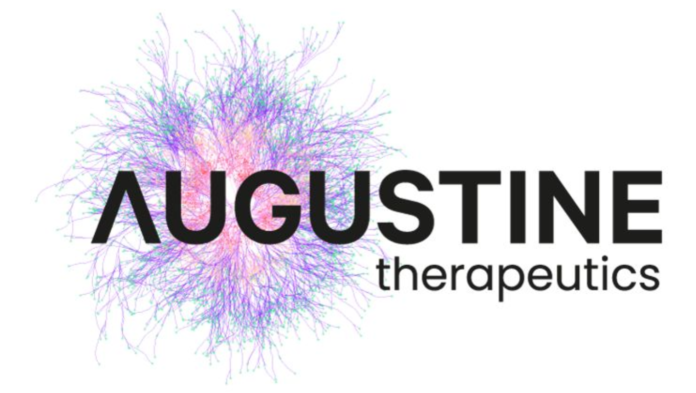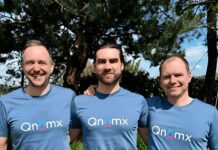Augustine Therapeutics has just closed a significant €77.7 million Series A funding round, setting the stage for a new wave of treatments targeting some of the most challenging neurological and cardio metabolic diseases. Based in Leuven, Belgium, the biotech company is pioneering next generation therapies through selective inhibition of the HDAC6 enzyme—an approach with wide potential across chronic conditions like Charcot Marie Tooth disease (CMT), neurodegenerative disorders, and beyond.
This oversubscribed round was co led by Novo Holdings and Jeito Capital, with strong participation from existing backers including Asabys Partners, Eli Lilly and Company, AdBio Partners, V Bio Ventures, PMV, VIB, Gemma Frisius Fund, the US based CMT Research Foundation, and Newton Biocapital. The new capital will accelerate Augustine’s lead program into clinical development while expanding its broader pipeline.
CEO Gerhard Koenig, PhD, highlighted the importance of this raise, noting that the funding validates both the company’s science and its strategy. Augustine’s unique approach to HDAC6 inhibition avoids the traditional pitfalls of older drug candidates. The company’s non hydroxamate, non hydrazide chemotype is designed to be highly selective while preserving the beneficial, non catalytic functions of the HDAC6 enzyme—something earlier treatments struggled to achieve. That innovation may be key to unlocking HDAC6 as a viable target for long term therapies.
With this round, Augustine is preparing to launch a Phase I/II clinical trial for its lead candidate, AGT-100216, aimed at treating CMT. Affecting around three million people globally, CMT is the most common inherited peripheral nerve disorder. Existing treatments are limited, and HDAC6 inhibition is emerging as one of the most promising therapeutic options on the horizon. Augustine’s candidate has been developed with both efficacy and long term safety in mind, which is especially critical for chronic conditions like CMT.
While AGT-100216 is the most advanced asset in the pipeline, the company is also progressing two additional discovery stage programs. These are focused on peripheral restricted and brain penetrant HDAC6 inhibitors, which could target a broader range of neurodegenerative and cardio metabolic diseases. The versatility of the HDAC6 mechanism opens up multiple pathways for future development, and Augustine appears to be strategically positioned to explore them.
The company’s origins are rooted in groundbreaking research led by Professor Ludo Van Den Bosch at the VIB KU Leuven Centre for Brain and Disease Research. Founded in 2019, Augustine initially secured seed funding from V Bio Ventures, AdBio Partners, VIB, PMV, and the Gemma Frisius Fund. With the appointment of Gerhard Koenig as CEO in early 2025, after serving as Executive Chairman since mid 2024, the company has doubled down on its transition into the clinical stage.
HDAC6 is known to be involved in processes related to neurodegeneration, cellular aging, and inflammation. While the enzyme has long been viewed as a potential therapeutic target, prior inhibitors often lacked the selectivity or safety profile necessary for chronic use. Augustine’s approach aims to change that narrative with a fresh chemotype designed for high selectivity and lower toxicity, positioning it as a potentially best in class option in a crowded field.
Novo Holdings, one of the lead investors in the round, expressed strong confidence in Augustine’s pipeline and leadership. Emmanuelle Coutanceau, PhD, Partner at Novo Holdings, noted that their landscape analysis of HDAC6 inhibitors pointed directly to Augustine’s compounds as among the most promising. The company’s presence in Denmark is also expected to expand, giving it access to a deep talent pool and a supportive biotech ecosystem—especially relevant as it explores indications related to cardio metabolic diseases.
Jeito Capital, the other co lead in the Series A, echoed the enthusiasm. Mehdi Ainouche, PharmD, Senior Principal at Jeito, described Augustine’s science as not only innovative but urgently needed, especially in areas where patients currently have few or no treatment options. The firm sees the collaboration as a long term opportunity to help bring meaningful therapies to market faster.
As part of the financing round, both Novo Holdings and Jeito Capital will take more active roles in guiding the company’s future. Emmanuelle Coutanceau and Mehdi Ainouche have joined Augustine’s Board of Directors, while Annette Clancy of Jeito Capital and Marie Schroeder, PhD, Vice President at Novo Holdings, will serve as Board Observers.
With a strong investor base, an experienced leadership team, and a focused pipeline, Augustine Therapeutics is stepping confidently into the clinical stage. If its HDAC6 inhibitors deliver on their potential, the company could play a leading role in transforming how we treat a wide spectrum of neurological and cardio metabolic diseases in the years ahead.





